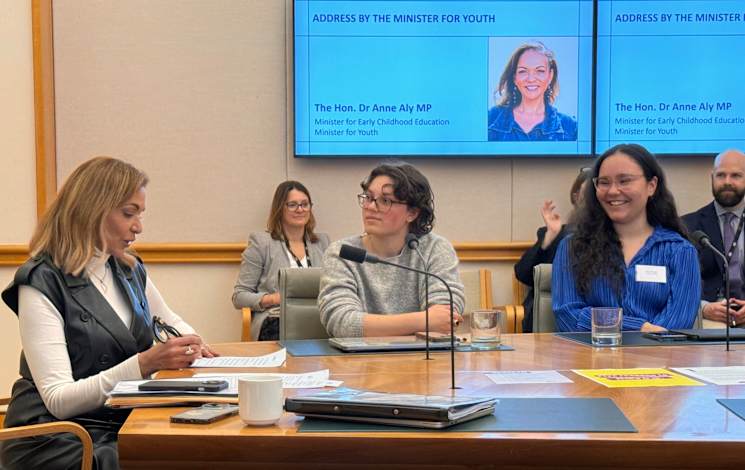Australian children can go to jail, start their first job, and begin driving under supervision all before they could access social media, after legislation was passed in the last sitting week of Parliament.
The law could come into force as soon as 2025, removing access to sites like Facebook, Instagram, TikTok and YouTube for those without a way to prove they are over 16.
Cowra’s own Stassi Austin has been a staunch advocate for rural and regional young people, serving as the chair of the Australian Youth Affairs Coalition (AYAC.) Ms Austin spoke with the Cowra Guardian in the wake of this new law.
Q. How would a social media ban impact young people in Cowra?
A. The social media ban will greatly affect how young people are informed about what is happening in the Cowra Shire. We will now have to rely on parents, teachers and those over the age of 16 to pass on information. Essentially, the government has stripped young people from participating in their communities, which will potentially have disastrous effects when it comes to their civic engagement in the future.
Latest Stories
Q. How do you use social media to engage with young people now?
A. Young people are digital natives, social media is our common connector. Instant messaging apps are the quickest form of communication. As chair of AYAC, I have seen how quickly information is shared. We use social media to send memes, chat about our day or relay important information to one another.
It is incredibly convenient to have information available at my fingertips. I wouldn’t be able to support issues happening in neighbouring LGA’s or across Australia without [social media]. I wouldn’t be able to share the amazing work happening in our own community.
Q. How could the ban impact city and country kids differently?
A. I believe that this bill will affect both city and country kids equally but will only exacerbate the underlying issues regional kids face.
Those in rural and regional communities are more susceptible to isolation, misinformation and online scams. Instead of addressing these issues, which would help people to develop critical skills that can be applied in other areas, the Government has decided to isolate one user group and set them up for failure.
Q. Do you support a ban, or is there another way to limit social media use, and abuse?
A. I don’t support a blanket ban but I do believe that more can be done to protect young people online.
We must advocate for age-appropriate digital spaces and provide all users with the tools they need to navigate these platforms safely. We know that tech companies have designed these platforms to actively ensnare users via their algorithms, so I would have liked to have seen the Australian Government focus on enacting a Digital Duty of Care Bill and work with experts and young people to create co-designed, effective solutions that help to promote digital health and digital literacy skills.
Young people I have spoken to want to see limits on social media but they want to help design these solutions. Young people have called for time limits to be introduced to stop the endless doomscroll, stronger privacy measures when it comes to instant messaging (no messages from accounts not already following them) and lessons in how to identify when they could be a target of abuse, whether that be physical, financial, social or otherwise.
These measures would be more beneficial in protecting young people online than a blanket ban.
Q. What role do you think governments have in regulating this space, if any?
There has been a moral panic that has dominated the conversations around this ban, and I’m worried that we’re using this as a way to punish young people when we really should be getting to the root cause of the many issues found online. Cyber bullying, diet culture, homophobia, racism, social isolation etc are all social cohesion issues and won’t stop because a ban is in place.
The harms of online spaces are significantly documented, however we are missing a nuanced and evidenced-based response to address these issues and are simultaneously refusing to acknowledge the good that social media can bring.
This ban will have a detrimental impact on already marginalized communities. Leading researchers and experts tell us that “every 4 in 10 children and every 6 in 10 teens source their news from social media” (Young and Resilient Research Centre) and that “73% of young people use social media for mental health support” (ReachOut). By cutting off age appropriate and safe social media access, this Government is effectively pushing already marginalized voices right to the edge.
For many young people, online platforms are the only way for people to connect to peers within their communities. It’s not as simple as “just having more conversations with one another” (as the Prime Minister recently put it) when we know that LGBTQIA+ young people can be harassed and isolated within their “real life” communities.













